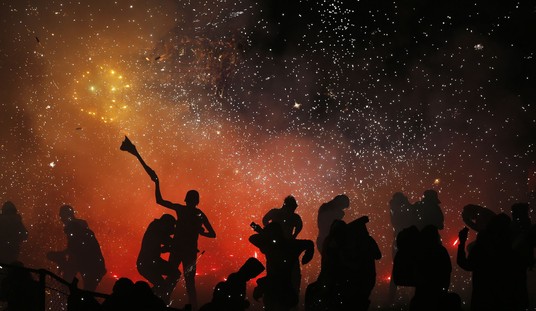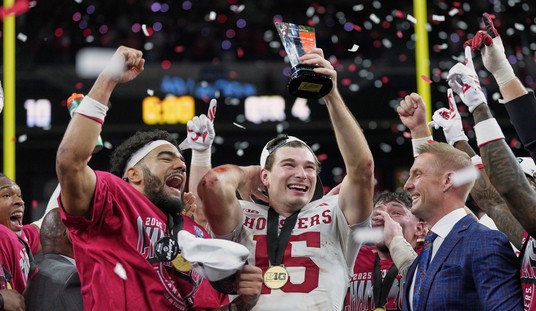Last week I went through my collection of old 45 records (LMGTFY if you’re under the age of 40) and ended up taking a trip in the Wayback Machine — back to the beloved songs of my childhood in the 1970’s. I wasn’t old enough then to understand the cultural implications of the songs and I was largely sheltered from the tumultuous cultural shifts of that era in my family’s suburban community. Listening to those songs now, knowing the history and the context (and also seeing parallels to today’s cultural conflicts), it’s interesting to see how these battles were both reflected in the music of the time and affected by it.
The year 1972 was a heady time for women’s rights. The first woman was admitted to Dartmouth, the first female FBI agents were hired, Sally Priesand became the first female U.S. rabbi and perhaps most significant, both houses of Congress passed the Equal Rights Amendment to the Constitution and sent it to the states for ratification. Opponents of the ERA warned that if it passed, we’d see women in combat, the disappearance of single-sex bathrooms, and women losing custody of their children in divorce cases. (It seems ironic now that all of those warnings have come to fruition, despite the failure of the states to ratify the amendment.)
That same year, the Supreme Court heard Roe v. Wade, which became the law of the land a year later when the Justices of the nation’s high court discovered a previously unknown right to privacy in the Constitution. The ruling effectively invalidated most state and federal laws that placed restrictions on abortion.
Also in 1972, Australian-born singer/songwriter Helen Reddy won the Grammy award for Best Female Performance for her song, “I Am Woman.” In her acceptance speech, Reddy thanked “God, because She makes everything possible.”
National Organization for Women founder Betty Friedan wrote that the NOW annual convention in Washington, D.C. in 1973 closed with the playing of “I Am Woman”. “Suddenly,” she said,
“women got out of their seats and started dancing around the hotel ballroom and joining hands in a circle that got larger and larger until maybe a thousand of us were dancing and singing, ‘I am strong, I am invincible, I am woman.’ It was a spontaneous, beautiful expression of the exhilaration we all felt in those years, women really moving as women.”
Though the song’s lyrics were rather tame by today’s standards, “I am woman, hear me roar” captured the imagination of the women’s liberation movement and became the movement’s anthem. And though it sounds like much of today’s generation’s self-help pablum, in the 1970’s it gave voice to the activists’ desire and determination to be free from the “involuntary servitude” of being a wife and mother.
But the movement didn’t represent all women and not all music embodied the spirit of rebellion against traditional marriage and family. Like today, country music in the 1970s often represented the values of middle America and a more idealistic version of the country — often in stark contrast to the values of Hollywood and the east coast.
Donna Fargo had a twangy country hit in 1972 — the same year as “I Am Woman” made the charts — called “The Happiest Girl in the Whole U.S.A.” The song hit #1 on Billboard’s Hot Country Singles and, because it had crossover appeal, hit #11 on Billboard’s Hot 100 Singles.
http://www.youtube.com/watch?v=DD0L0nyM7OY
Though the song doesn’t mention marriage or family, there’s a sweetness to it that evokes the image of a newlywed couple starting their lives together.
Good morning morning
Hello sunshine
Wake up sleepy head
Why’d we move that bojangle clock so far away from the bed
Just one more minute
That’s why we moved it
One more hug will do
Do you love waking up next to me
As much as I love waking up next to youYou make the coffee
I’ll make the bed
I’ll fix your lunch
And you fix mine
Now tell me the truth
Do these old shoes look funny
Honey it’s almost nine
Now you be careful
Gotta go I love you
You have a beautiful day,
And kiss the happiest girl, In the whole U.S.A.Skippidity do da
Thank you oh Lord for making him for me
And thank you for letting life turn out the way
That I always thought it could be
There once was a time when I could not imagine
How it would feel to say
I’m happiest girl, in the whole U.S.A
Compared to today’s more sophisticated sounds, it’s hokey and cheesy, but it represents something the feminists of the 1970’s were desperately trying to destroy — the value of marriage and the joy that it can bring. Already beginning to be thought of as an antiquated notion in the 1970s as divorce and cohabitation rates began to soar, the song defiantly declared that marriage — and the mutual happiness and dependence that accompany it — was good and could be sweet and beautiful. It was a slap in the face of Betty Friedan, who cynically compared being a housewife to life in a concentration camp. “They are suffering a slow death of mind and spirit,” Friedan wrote in The Feminine Mystique.
As Solomon said, “There is nothing new under the sun.” Today’s music, far less tame than Helen Reddy’s hit, wantonly celebrates promiscuity, infidelity, and misogyny. Women are regularly degraded and objectified. But as in the 70s, every once in a while, despite demand for raunchy lyrics, a song emerges that reminds us about the rewards of a committed marriage. Lee Brice’s 2010 country hit “Love Like Crazy” is one such song. It celebrates a marriage of fifty-eight years and gives advice for a happy marriage:
Just ask him how he made it
He’ll tell you faith and sweat
And the heart of a faithful woman
Who never let him forgetBe a best friend, tell the truth
And overuse “I love you”
Go to work, do your best
Don’t outsmart your common sense
Never let your prayin’ knees get lazy
And love like crazyAlways treat your woman like a lady
Never get to old to call her baby
Never let your prayin’ knees get lazy
And love like crazyThey called him crazy when they started out
They’ve been together fifty-eight years now
Ain’t that crazy?











Join the conversation as a VIP Member